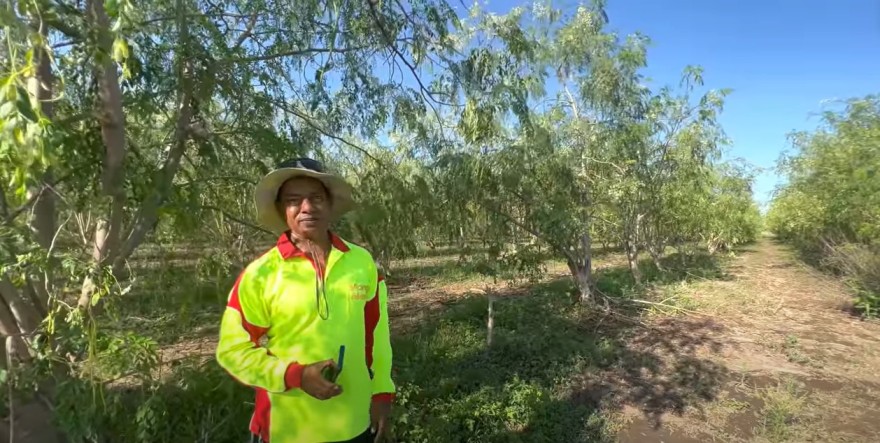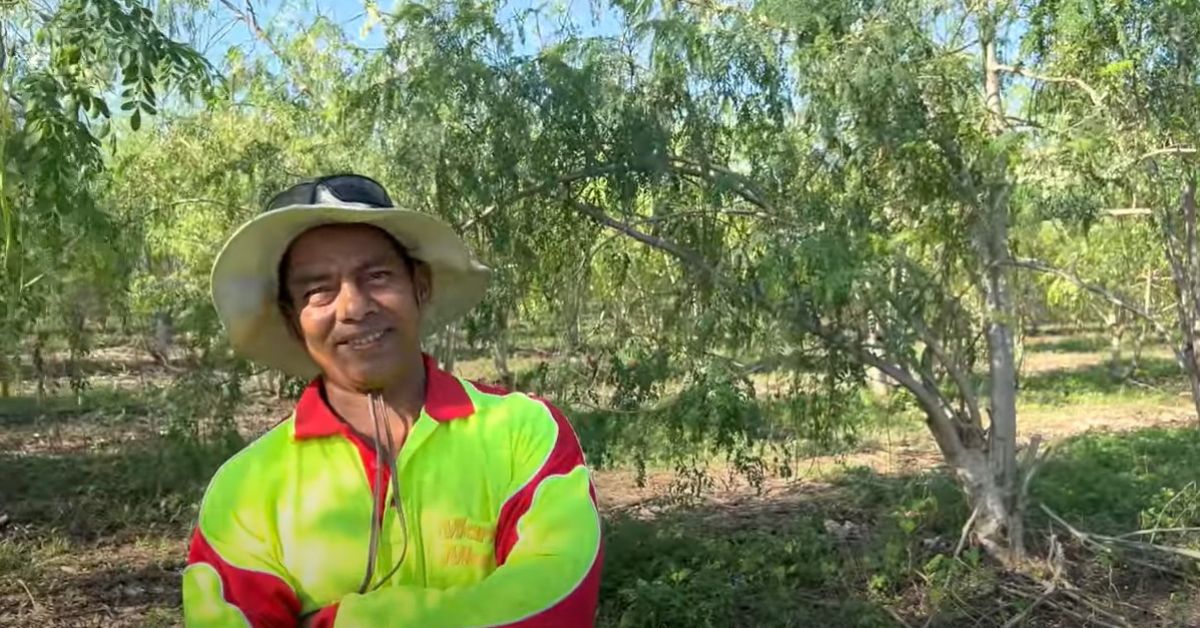For Kottayam resident Sajan Sasi, moringa (drumstick tree) is synonymous with nostalgia.
“My mother used to add moringa to all possible dishes, saying it has great health benefits. Growing up, I didn’t enjoy it much, but after shifting to Australia, this is what I missed the most,” Sajan tells The Better India.
When Sajan started living on his own, he tried cooking some dishes with moringa and also read about it. “I realised that moringa is a storehouse of nutrients and can keep almost all diseases at bay if used regularly,” he says.
As an engineer, Sajan’s work took him to Melbourne, Australia, 15 years ago. That’s when he discovered that moringa had a great market in foreign countries and that it was quite expensive.
“Because my family had always been inclined towards farming, I too developed a taste for it. Also, a typical Malayali will never let their yard remain empty and will try planting at least curry leaves, no matter which part of the world they’re in. Despite the extreme climate in Melbourne, I tried planting chilli and tapioca in my yard, but I failed miserably,” recalls the farner, who is in his 40s.
During this time, he went for a family outing to a village called Ayr, located in the northern part of Queensland. The village had rich soil, fine weather and vegetable cultivation. Sajan felt the urge to purchase land and try his luck at farming here.

So, he took advice from experienced farmers back in Kerala and bought 20 acres of land to put together a farm. Sajan opted for moringa as his first crop, aware of its demand all over the world. “It’s been five years since I shifted to Ayr and started the farm. It has been successful, and I export the produce to over 10 American and European countries now,” says the farmer.
Moringa powder for the win
Tender and mature drumsticks are sold in bundles in Melbourne and Sydney markets. Other than selling the produce directly, Sajan makes value-added products that can sustain for more days. His main product is moringa powder made by crushing dried leaves.
“The powder is sold in 50g, 100g and 500g packets for a price range between $50 and $70,” says Sajan.
He adds, “Drumstick leaves are rich in antioxidants, vitamin C and beta-carotene, which protect us from many chronic oxidative diseases — including heart disease, diabetes, cancer, and Alzheimer’s. People largely buy our product to add it to their breakfast items and curries.”
Sajan says that tender drumsticks can be used as an alternative to beans in salads and other dishes, and drumstick seeds also have a good market.
From the profit gained out of the moringa business, he purchased 34 acres of land near the farm and planted several Indian varieties of mangoes. There are a total of 1,000 mango trees on the farm now. The fruit is also exported to other countries after segregation based on size.
“Since labour is very expensive here, I use more machinery for plucking and processing the items. For example, mango is plucked from the trees in November and directly put into hot water for cleaning. Later, another machine separates the fruits based on size, and they are transferred to boxes by us,” he says.
While the mango saplings were shipped from India, the moringa variety was developed by tissue culture in Australia, says the agripreneur.
Furthermore, Sajan adds that cow dung is the major manure he uses.
“We develop a jivamrut mix, which includes cow dung, cow urine, jaggery, gram flour and forest soil. The mix is kept aside for seven days during which the microorganisms from the forest soil react with other ingredients to form a rich fertiliser. It comes in liquid form that is later filtered before giving to the plants,” he says.
Other than moringa and mango, Sajan has planted other vegetables like chilli, okra, brinjal, tapioca and other tubers in small quantities in between the trees. These items are not sold because he finds it hard to employ labourers to harvest the produce.
“I didn’t start farming just for the money, but rather I could eat what I like and share the same with a bigger population. Nature bestows us with everything but we don’t usually give back anything except toxic chemicals and pollutants. This is another thought that took me to the farm, and I am happy that it worked out well. My family and friends in Kerala are glad and surprised to know that I took up farming. I’m grateful to everyone there for their constant support and advice,” says Sajan.
He hopes to expand his cultivation to more areas and try growing more crops in the coming years.
Edited by Pranita Bhat; Photo Credits: YouTube/Tony’s Kitchen
If you found our stories insightful, informative, or even just enjoyable, we invite you to consider making a voluntary payment to support the work we do at The Better India. Your contribution helps us continue producing quality content that educates, inspires, and drives positive change.
Choose one of the payment options below for your contribution-
By paying for the stories you value, you directly contribute to sustaining our efforts focused on making a difference in the world. Together, let's ensure that impactful stories continue to be told and shared, enriching lives and communities alike.
Thank you for your support. Here are some frequently asked questions you might find helpful to know why you are contributing?

